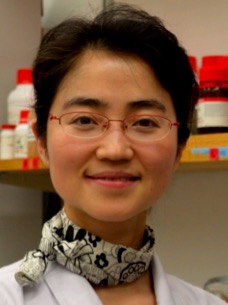Changhong Ren

Changhong Ren, MD,PhD
Associate Professor of Institute of Hypoxia Medicine Xuanwu Hospital, Capital Medical University.
Dr Ren graduated from Traditional Chinese Medical University of Heilongjiang. She obtained her Doctor degree at Department of Neurology, Yamagata University, Japan. She joined Department of Neuropathology and Neuroscience, Graduate School of Pharmaceutical Science, University of Tokyo in 2004 for her postdoctoral training. In 2006, she jointed Department of Neurobiology, Beijing Radical Medicine Institute as postdoctor. She joined the Institute of Hypoxia Medicine Xuanwu Hospital, Capital Medical University in August 2010. She has been performed her research at University of North Texas Health Science Center, United State from 2013 to 2015.
Dr Ren’s research focused on effect of hypoxic/ischemic conditioning on cerebral ischemia; stroke biomarker and effect of TCM on cerebral ischemia. She is the Member of Standing Committee China Association of Chinese Medicine Subcommission of Chinese herb Dispensing and Rational Application. Currently, she has 71 peer-reviewed publications. Her researches are supported by several grants, including three National Natural Science Foundation of China.
Published paper: (the past two years)
1. Ren C, Kobeissy F, Alawieh A, Li N, Li N, Zibara K, Zoltewicz S, Guingab-Cagmat J, Lamer SF, Ding Y, Hayes RL, Ji X, Mondello S. Assessment of Serum UCH-L1 and GFAP in Acute Stroke Patients. Scientific Rep. 2016, 6:24588.
2. Ren C, Liu K, Li N, Cui X, Gao Jin, Ji X, Ding Y. Neural transmission pathways are involved in the neuroprotection induced by post but not per-ischemic limb remote conditioning. Brain Circulation. 2015, 1(2):160-167.
3. Ren C, Li N, Wang B, Yang Y, Gao J, Li S, Jin K, Ji X. Limb ischemic perconditioning attenuates blood-brain barrier disruption and brain edema by inhibiting MMP-9 activity and occludin degradation after focal cerebral ischemia. Aging and Disease,2015,6(6):406-417.
4. Ren C, Wang P, Wang B, Li N, Li W, Zhang C, Jin K, Ji X. Limb remote ischemic per-conditioning in combination with post-conditioning reduces brain damage and promotes neuroglobin expression in the rat brain after ischemic stroke.Restor Neurol Neurosci, 2015. 33 (3) 369–379.
5. Ren C, Brian W, Li Ning, Jin K, Ji X*,Herbal formula Danggui-Shaoyao-San promotes neurogenesis and angiogenesis in rat following middle cerebral artery occlusion. Aging and Disease. 2015, 6(4):245-53

